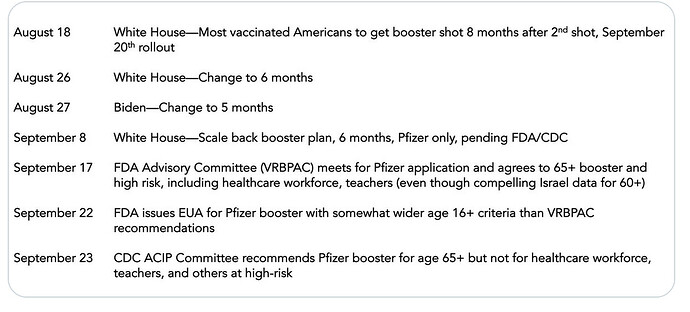Aargh. Sometimes I think that Ed Yong, as helpful a sci writer as he is, would be best used as a sci editor at the Atlantic, which seems to be sprouting a whole stable of science writers who do sloppy and misleading work. Work that people trust and walk away from with “oh, I get it now,” because the sentences are in English, not science, and sound intelligent.
The key thing in here is true: If you don’t get it, you can’t spread it. That’s what makes the vaccine – any vaccine – such a terrific thing from a public health point of view. Vaxed people, much less likely to get it.
However.
First, The infectivity-time study he cites should be thrown out the window as a thing to rely on. Why?
a. n is too small. 167 patients is a preliminary study and tell you that a thing might be so, needs more study.
b. this is a preprint, not peer-reviewed yet.
c. …and this is unfortunate, but it’s a Chinese source, Chinese scientists at a Chinese health institution. China has had serious problems with fraud in publication and incentivizing scientists to get in hard on the publishing game that, established in the West, is the gateway to scientific legitimacy and money. It’s extremely unfortunate and harms the reputations of good Chinese scientists who do good clean work. But it’s a thing that has to be taken into consideration, particularly in papers that haven’t yet been reviewed.
For what it’s worth, I’ve also read preprints that track viral load in vaxed v. unvaxed infected patients, and shown that the majority of the vaxed will have a sharp and early spike that goes as high as the unvaxed, but that most of the vaxed will then see the load drop off again sharply…and some will not, some will see it drop off much more slowly.
Second, from a personal point of view, not a public-health one, when you’re hanging out with vaxed friends, the picture is different. First, the stakes are higher: it’s your health and wellbeing. For you, it’s a situation much closer to a binary: if you get bad sick, it’s not “some number in a population are sick,” it’s a catastrophic thing in your life.
While your vaxed friends are much less likely to be infected than your unvaxed friends are, you have no way of knowing whether any of them happens to be infected, meaning that the odds game isn’t enormously relevant in an individual-person way, only in a 30,000-ft public-policy way that’s looking at a population as a whole. Or even an ER way, where you’re seeing hundreds of people come through in a week and there’s a big difference between a flood of covid patients and a trickle, and while you acknowledge that the trickle patients have it bad, the ER doesn’t have it bad.
You also cannot know which of your friends is lying about being vaxed unless you have a vax-card party. As someone who used to tell men that there wasn’t going to be no sex unless I saw that yellow HIV-negative slip, I can tell you that the level of chutzpah required to demand evidence socially is pretty unusual.
Bottom line: unless you think you can afford to get covid, get together, but keep wearing the best mask you can get, and yes that includes when people are eating. If you have particular vulnerabilities (older, preexisting condition, no backup, unusual responsibilities), don’t get together indoors.
eta: this is a sloppy-editing thing on the Atlantic’s part, but the scientists were not “prescient” when they warned against the CDC messaging, unless you mean that in the most literal possible way: pre-knowing, before any sort of knowledge is possible. They were saying, like good scientists: Nobody knows, full stop, stop saying you do. There was no scientist fact-dowsing going on there.

